“The Grace Blackwell Superchip comes to millions of developers”: Nvidia's new 'Project Digits' mini PC is an AI developer's dream – but it'll set you back $3,000 a piece to get your hands on one
The Nvidia mini PC features an all new Grace Blackwell GB10 ‘superchip’ and promises to supercharge AI development

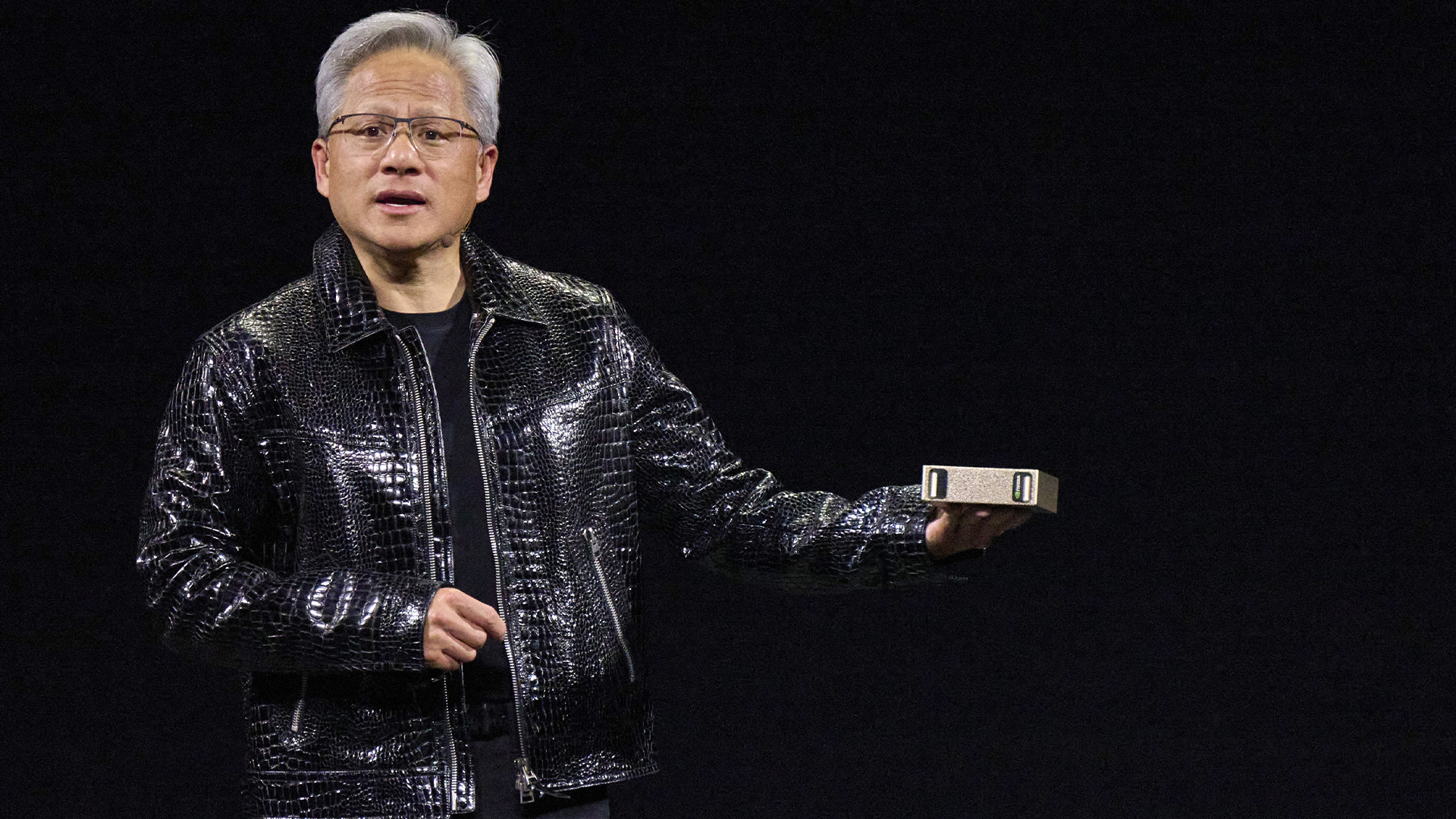
Nvidia shocked attendees at CES 2025 last week when it announced a new mini PC which it claims is the world’s smallest AI supercomputer.
Unveiled by CEO Jensen Huang in a Steve Jobs-esque ‘one more thing’ fashion, the device will feature a Grace Blackwell GB10 ‘superchip’ capable of delivering a petaflop of AI performance.
Project Digits, a placeholder name for the unit which Nvidia is actively seeking public input on to improve, will be equipped with the entire Nvidia software stack including NeMo, RAPIDS, Blueprints, NIM, and more.
The GB10 superchip will feature a GPU boasting the latest generation CUDA cores and fifth generation Tensor cores, as well as an ARM-based CPU with 20 power-efficient cores, which was designed in collaboration with Taiwanese semiconductor manufacturer MediaTek.
The system will come with up to 4TB of NVMe storage alongside 128GB of unified onboard memory, although the memory bandwidth capabilities were not revealed, prompting speculation about whether this may be a potential bottleneck for the system.
Designed specifically for AI developers, Nvidia said the device will be able to create prototypes, fine-tune, and run inferencing of large language models (LLMs) of up to 200 billion parameters locally.
It comes with a hefty price tag, however. Priced at $3,000, Nvidia is targeting enterprises and research institutions who are interested in developing and deploying advanced AI models without sinking huge amounts of capital in data center infrastructure or paying exorbitant cloud fees.
Sign up today and you will receive a free copy of our Future Focus 2025 report - the leading guidance on AI, cybersecurity and other IT challenges as per 700+ senior executives
Project Digits will allow users to develop and run inference on these models using a single piece of hardware, which they can then choose to deploy to the cloud or a data center as they see fit.
The mini PC is set for an official launch in May 2025, and will be available from Nvidia and partners, the company confirmed.
Powerful AI-focused mini PCs to become a fixture in 2025
As Jensen Huang held the pint-sized device on stage at CES, he declared AI was the new mode of computing, and as such will become the norm across applications in every industry.
“AI will be mainstream in every application for every industry. With Project Digits, the Grace Blackwell Superchip comes to millions of developers,” he said.
“Placing an AI supercomputer on the desks of every data scientist, AI researcher and student empowers them to engage and shape the age of AI.”
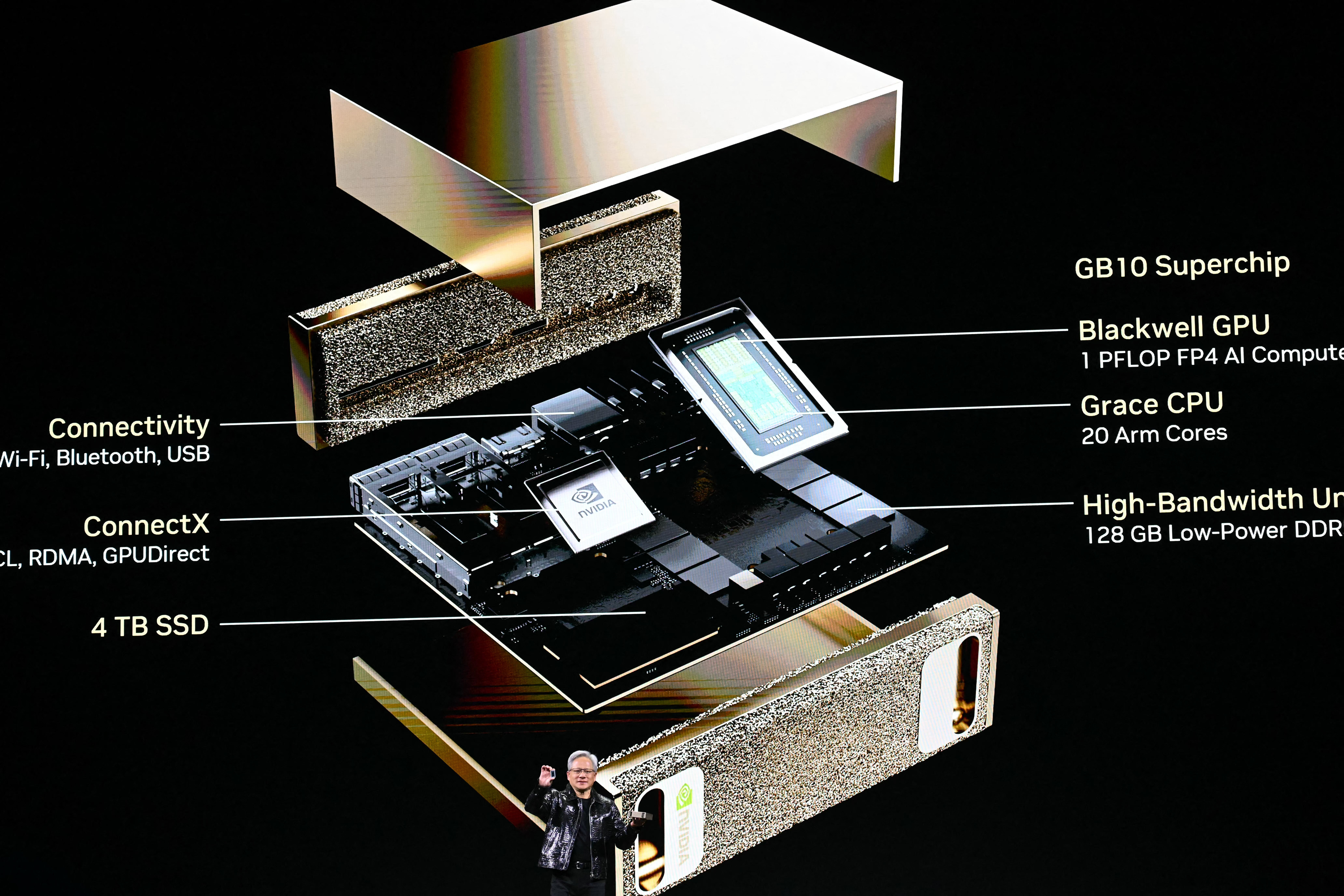
With Project Digits, Nvidia looks to maintain its sizable lead in the AI compute space with a more approachable all-in-one system with a price that, although prohibitive to the average consumer, is relatively modest in the world of AI computing infrastructure.
RELATED WHITEPAPER
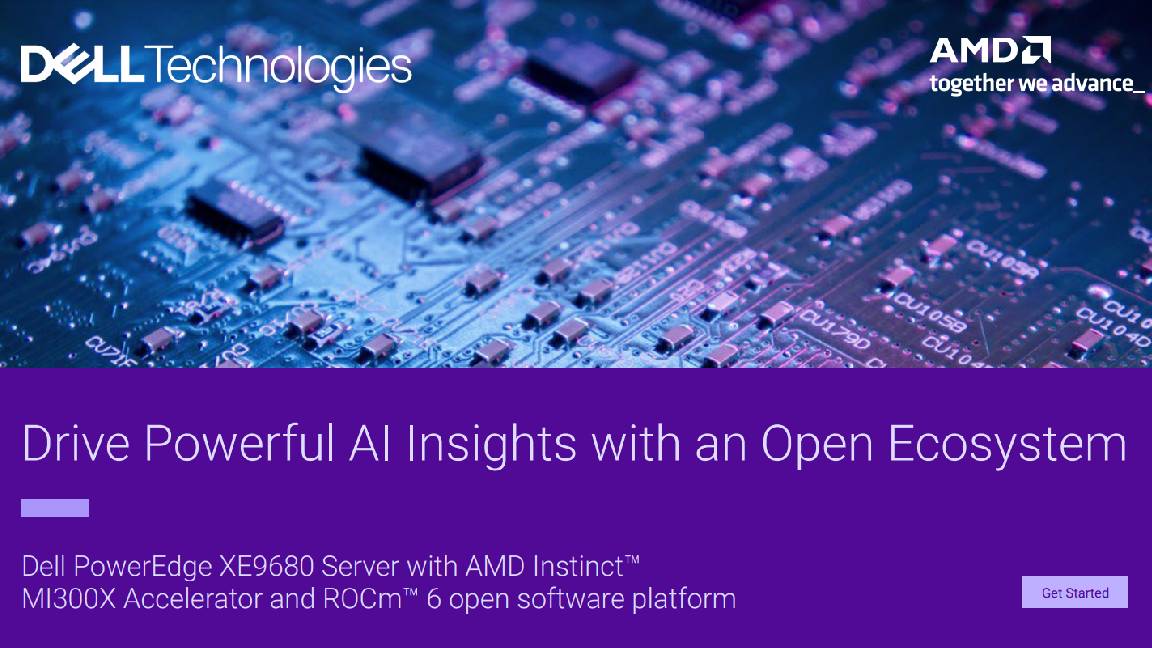
The off-the-shelf system is not without competitors, however, with other major players unveiling their own mini workstations capable of powering generative AI fine-tuning and inferencing workloads.
For example, HP launched its Z2 Mini G1a workstation that features AMD’s Ryzen AI Max+ Pro 395, with 16 cores and 32 threats running at a base speed of 3 GHz and capable of being boosted up to 5.1 GHz.
HP says the workstation will be able to tackle complex AI-accelerated projects such as working on LLMs locally as well as other graphics-intensive and 3D design workloads.
As it is running on an AMD platform, the HP system will not be able to run Nvidia’s CUDA platform but will have access to AMD’s competing ROCm software.

Solomon Klappholz is a former staff writer for ITPro and ChannelPro. He has experience writing about the technologies that facilitate industrial manufacturing, which led to him developing a particular interest in cybersecurity, IT regulation, industrial infrastructure applications, and machine learning.
-
 What is Microsoft Maia?
What is Microsoft Maia?Explainer Microsoft's in-house chip is planned to a core aspect of Microsoft Copilot and future Azure AI offerings
-
 If Satya Nadella wants us to take AI seriously, let’s forget about mass adoption and start with a return on investment for those already using it
If Satya Nadella wants us to take AI seriously, let’s forget about mass adoption and start with a return on investment for those already using itOpinion If Satya Nadella wants us to take AI seriously, let's start with ROI for businesses
-
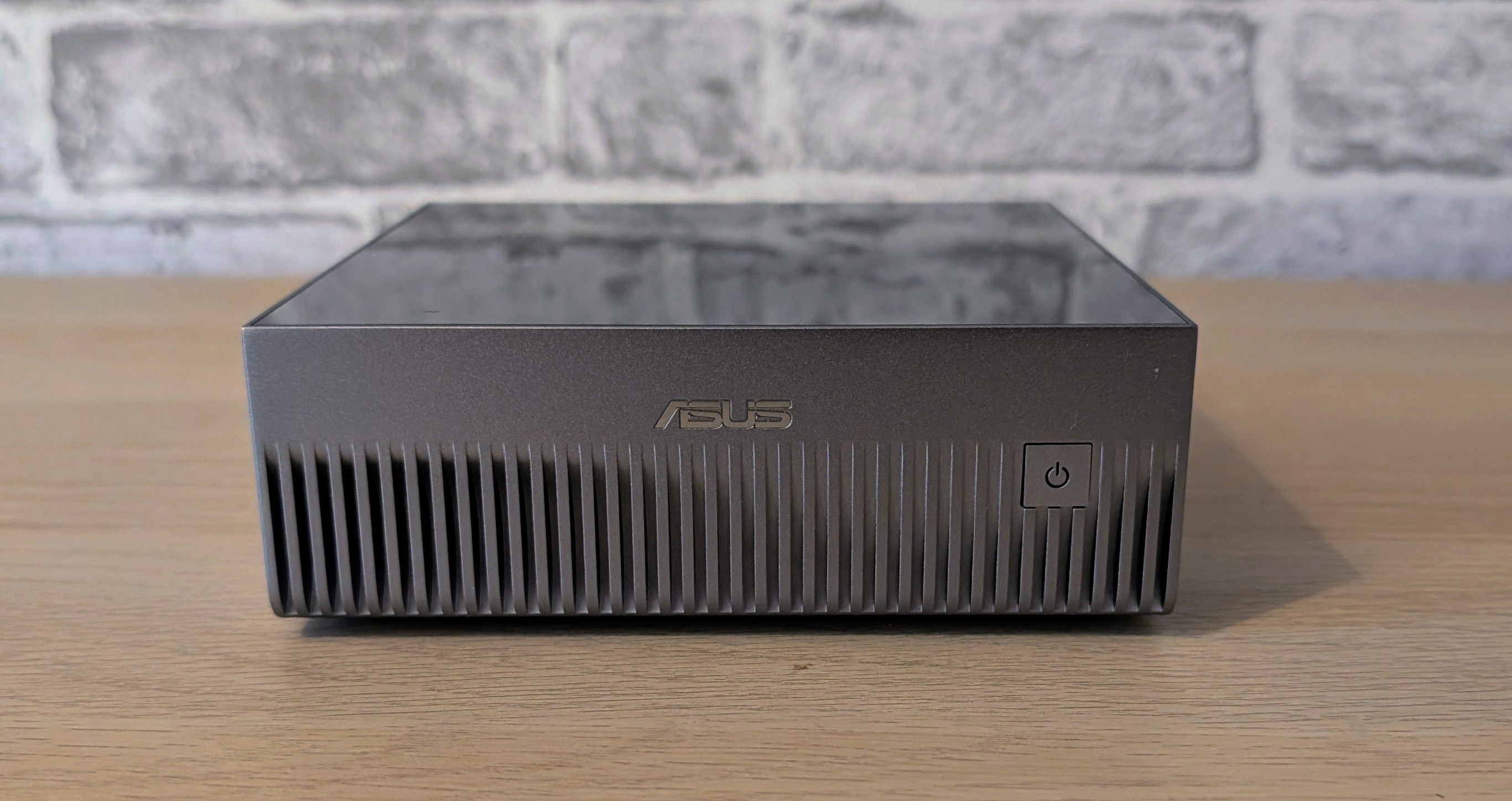 The Asus Ascent GX10 is a MiniPC with supercomputer ambitions for AI developers – but it's not cheap
The Asus Ascent GX10 is a MiniPC with supercomputer ambitions for AI developers – but it's not cheapReviews The Ubuntu-on-ARM operating system could limit its appeal, but for both serious and neophyte AI developers, it's a great desktop box
-
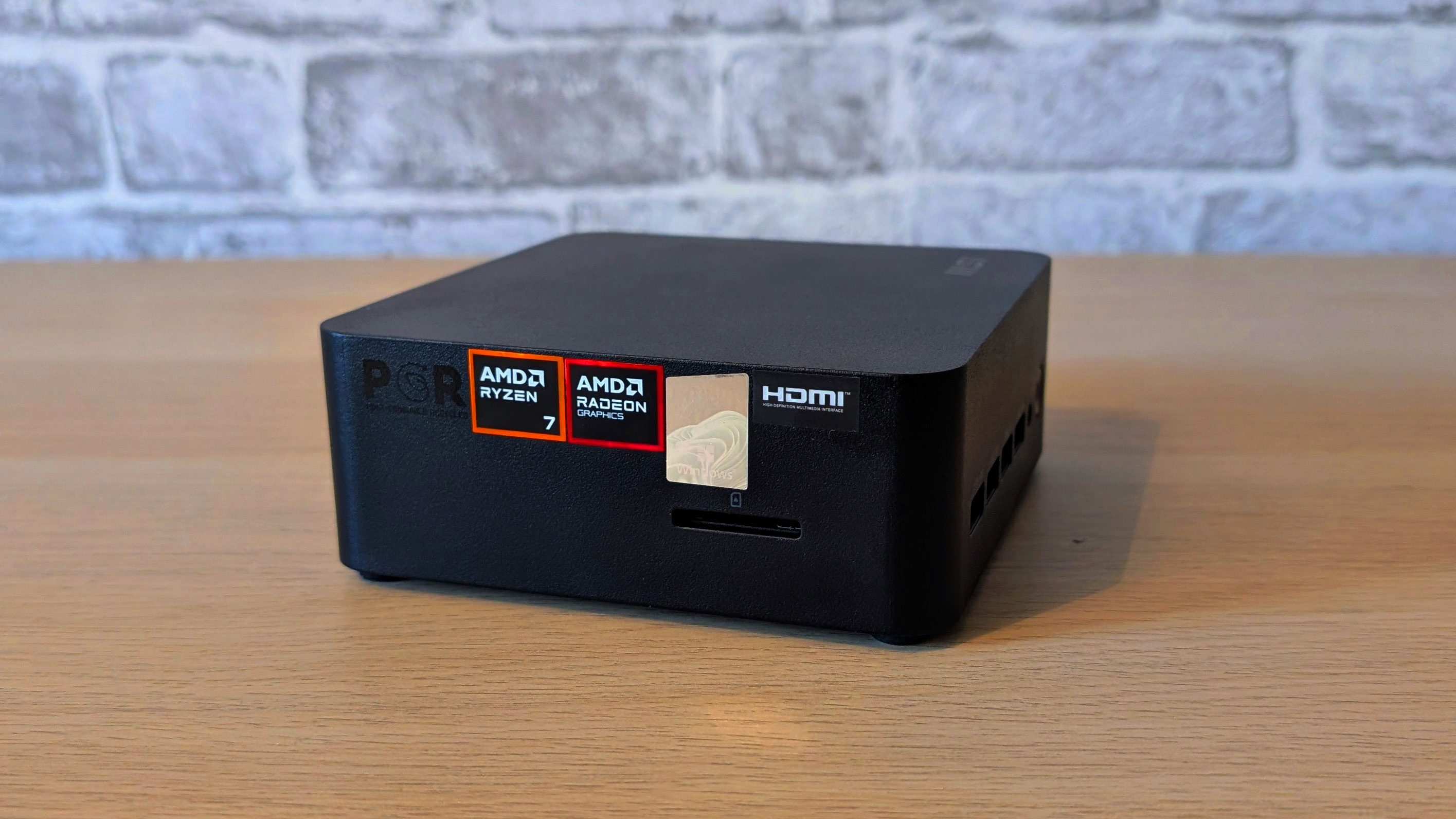 The MSI Cubi Z AI 8M is an affordable mini PC with powerful AMD Radeon graphics – but they really shouldn't have bothered with the speakers
The MSI Cubi Z AI 8M is an affordable mini PC with powerful AMD Radeon graphics – but they really shouldn't have bothered with the speakersReviews An AMD-powered mini PC with a plethora of ports, strong performance, and an attractive price tag
-
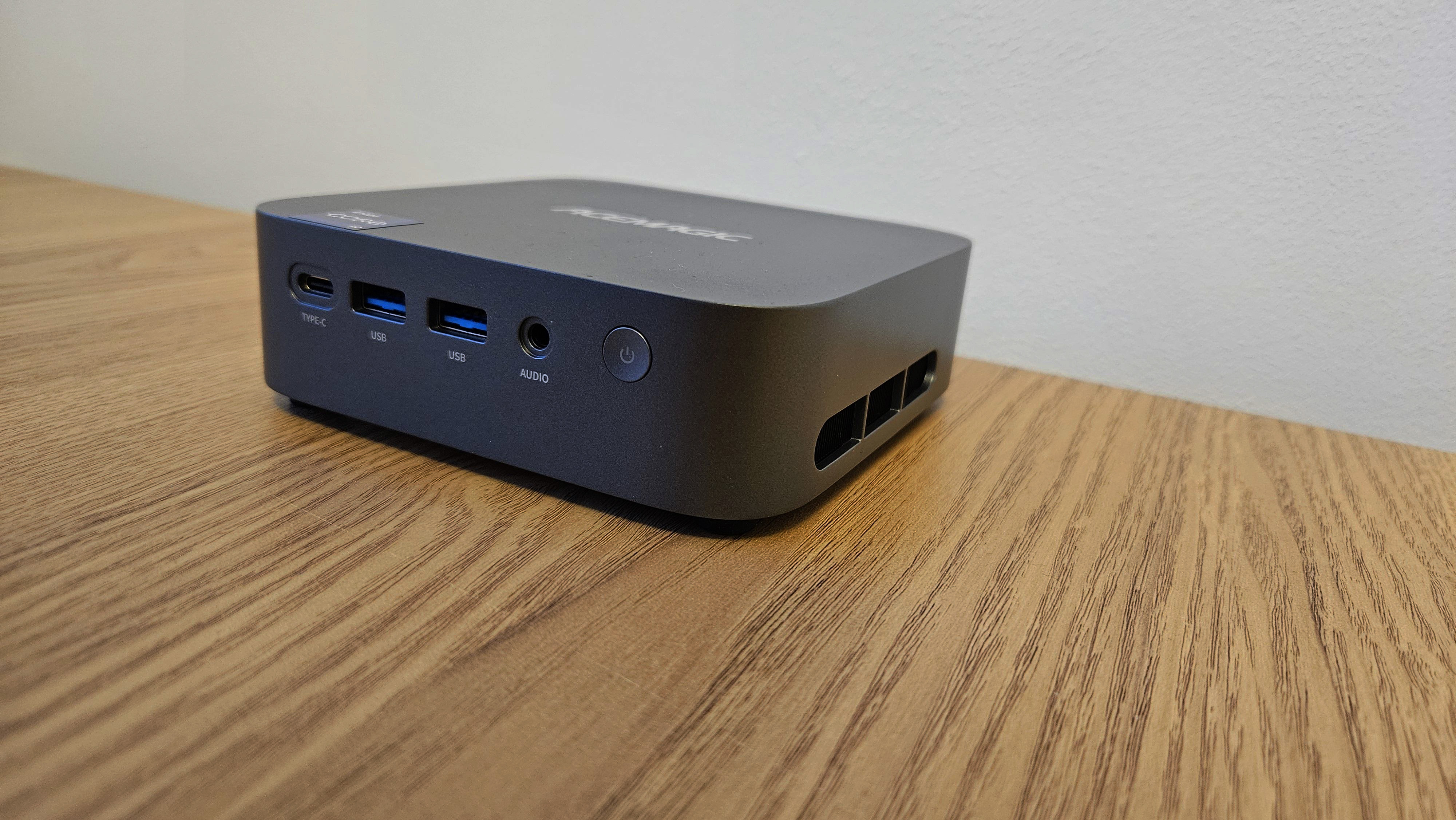 The Acemagic Matrix Mini M1 is stylish and versatile – and it's surprisingly affordable
The Acemagic Matrix Mini M1 is stylish and versatile – and it's surprisingly affordableReviews The Intel-powered Acemagic is a smart-looking machine with plenty of connectivity options and a reasonable price
-
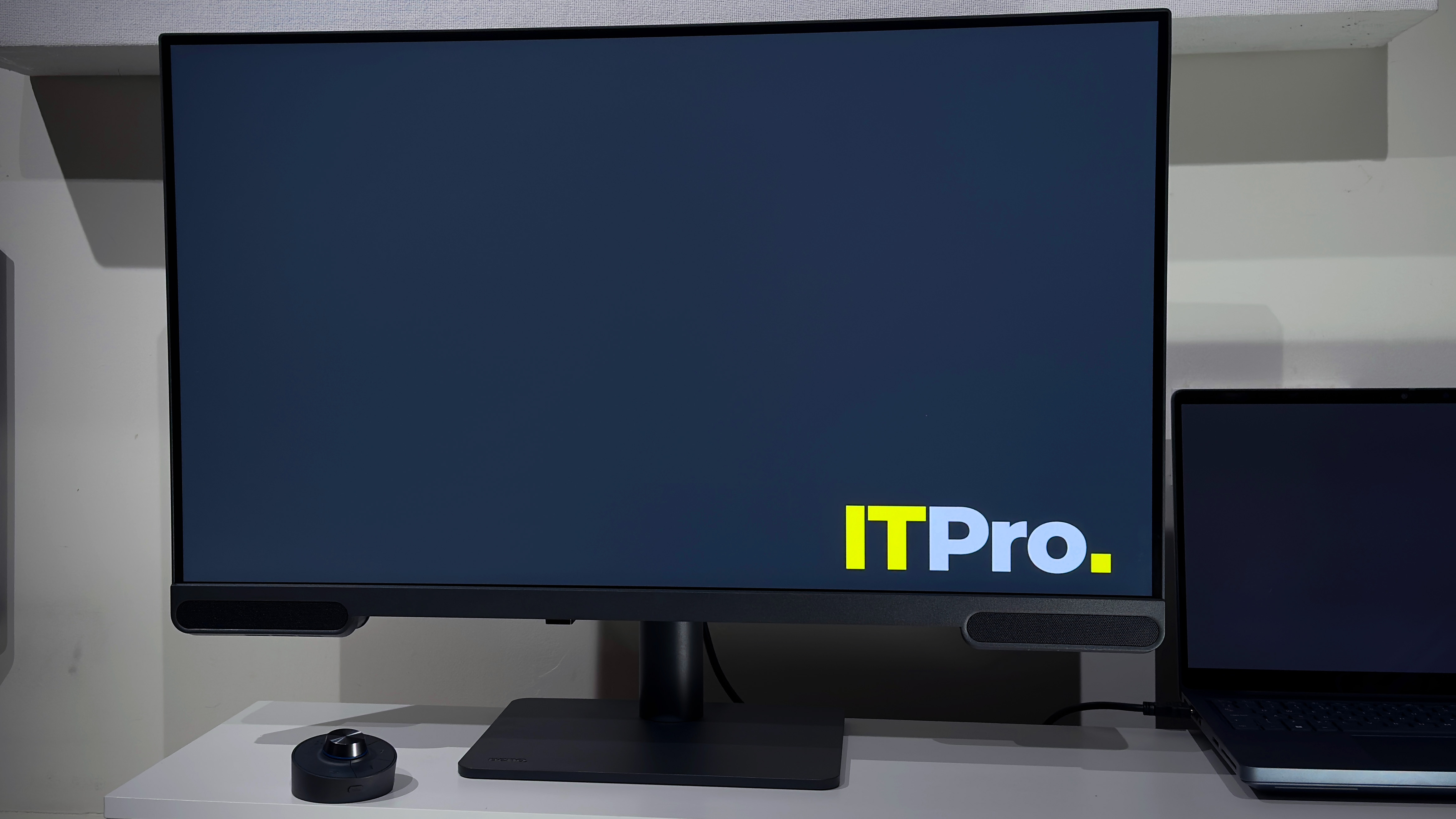 BenQ PV3200U monitor review: Big value for content creators
BenQ PV3200U monitor review: Big value for content creatorsReviews A £699 32-inch 4K monitor for video editing – but it needs a few cuts to appeal to its target audience
-
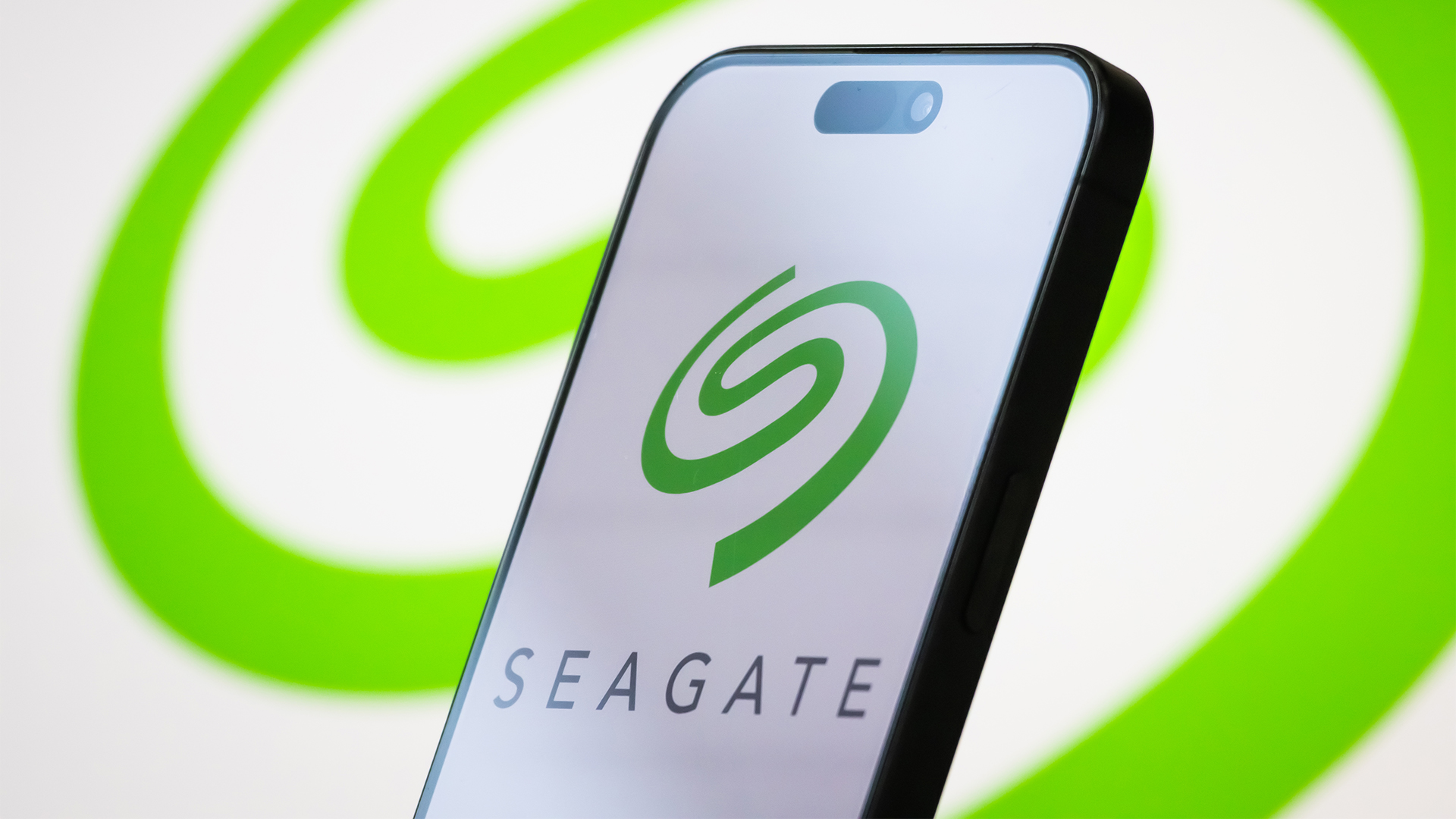 Seagate and Acronis are teaming up to drive MSP storage capabilities
Seagate and Acronis are teaming up to drive MSP storage capabilitiesNews Acronis will incorporate Seagate’s Lyve Cloud Object Storage into its archival storage offerings to help MSPs meet AI-driven data demands
-
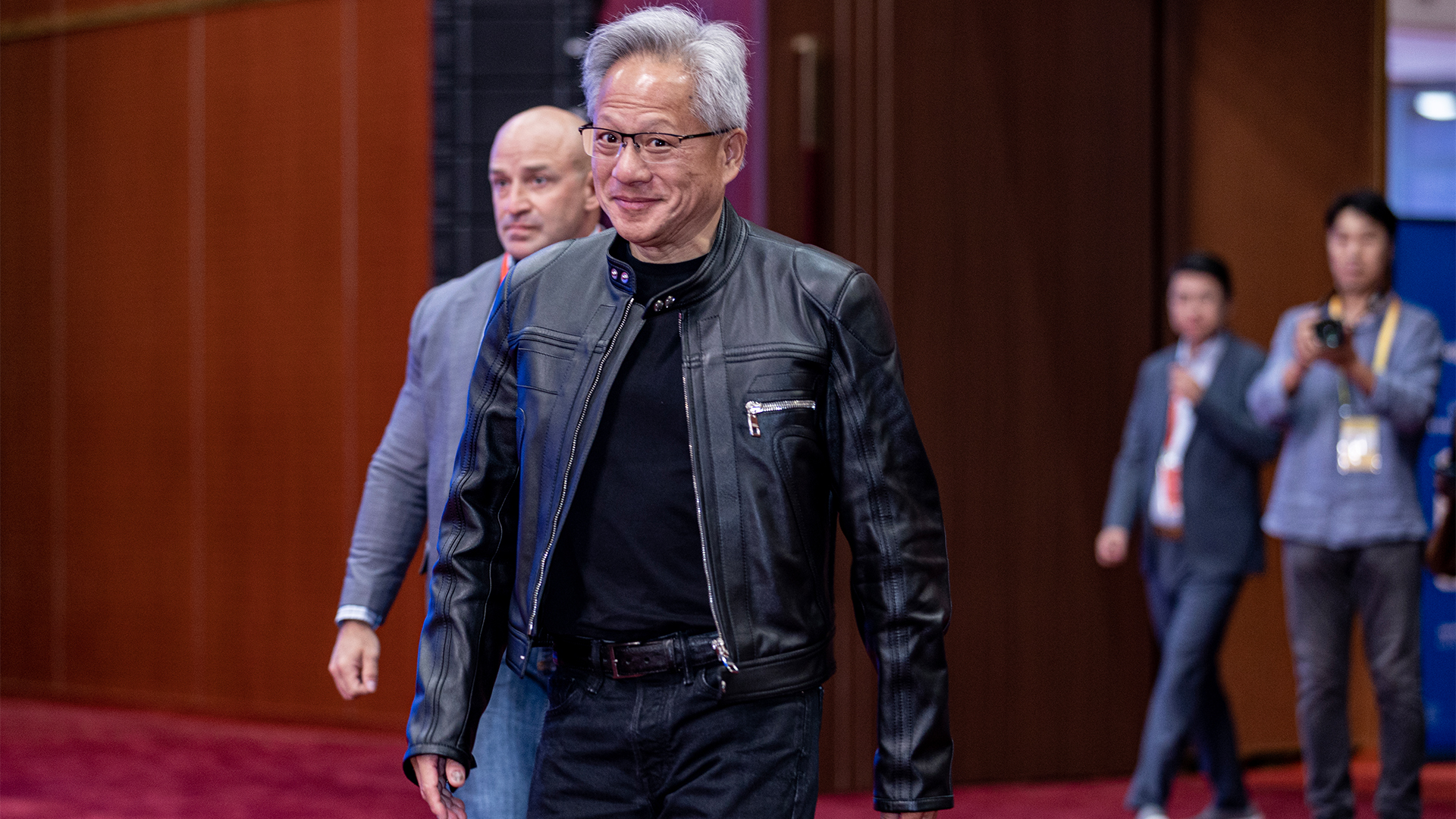 Nvidia’s Intel investment just gave it the perfect inroad to lucrative new markets
Nvidia’s Intel investment just gave it the perfect inroad to lucrative new marketsNews Nvidia looks set to branch out into lucrative new markets following its $5 billion investment in Intel.
-
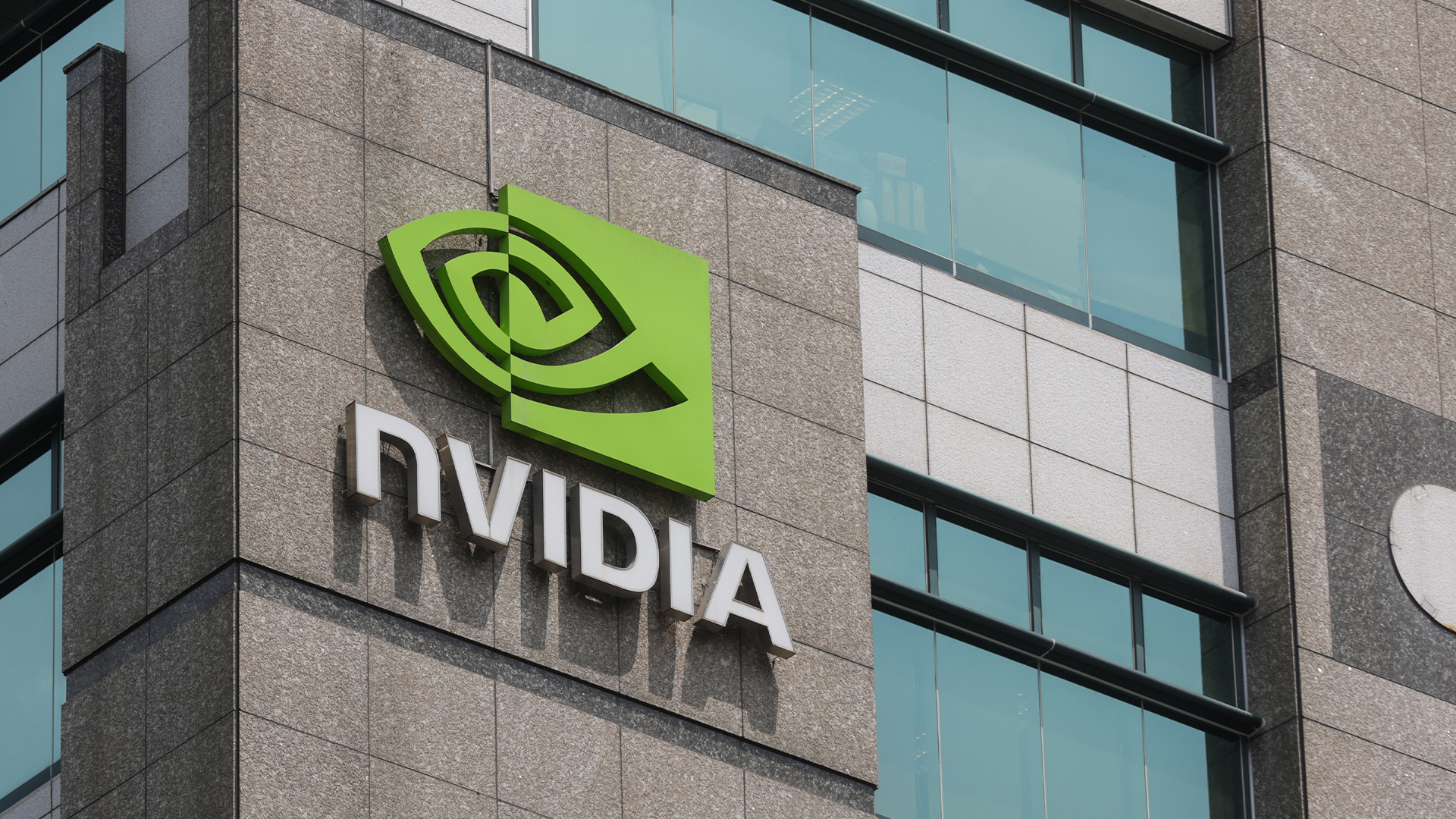 Nvidia hails ‘another leap in the frontier of AI computing’ with Rubin GPU launch
Nvidia hails ‘another leap in the frontier of AI computing’ with Rubin GPU launchNews Set for general release in 2026, Rubin is here to solve the challenge of AI inference at scale
-
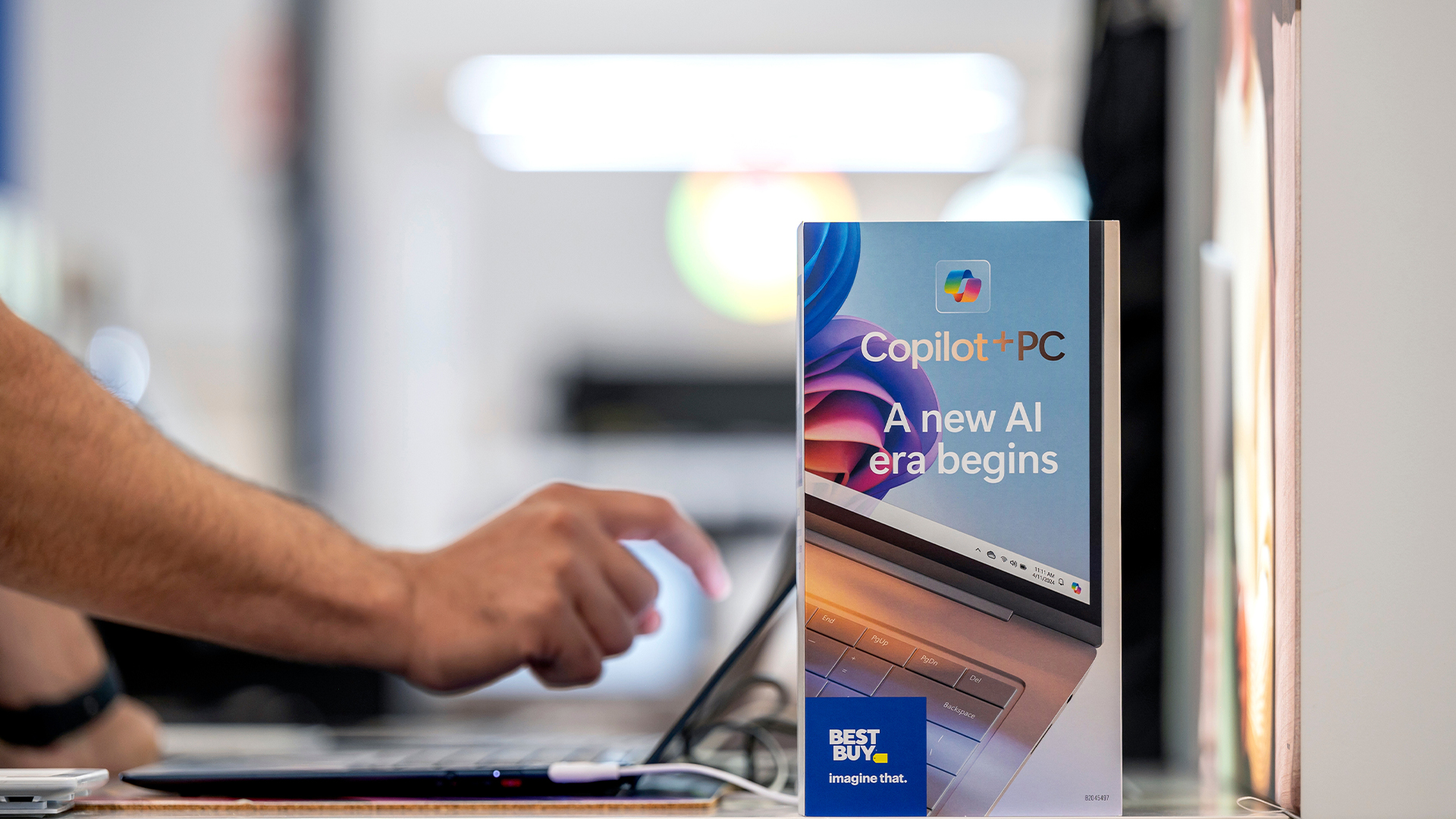 AI PCs will ‘become the norm’ by 2029 as enterprise and consumer demand surges
AI PCs will ‘become the norm’ by 2029 as enterprise and consumer demand surgesNews AI PCs are expected to make up a significant portion of the total PC market by the end of 2025 - and Gartner says they'll "become the norm" by 2029.